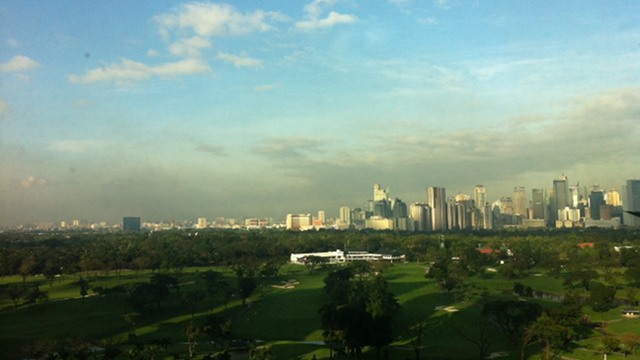SUMMARY
This is AI generated summarization, which may have errors. For context, always refer to the full article.

MANILA, Philippines – The Philippines and Indonesia, emerging Southeast Asian economies, are showing resilience in the midst of weakening European economies. This is according to the most recent property report of Jones Lang La Salle (JLL).
With its 6.1% GDP growth rate for 1st quarter 2012, the Philippines — now with one of the fastest growing GDP rates in Asia — is also among the few in the region which has shown the most resilience. JLL’s 3rd quarter 2012 Asia Pacific Property Digest pointed out the resilience is evident despite falling demand in the West and China.
In both the commercial and residential fields, this growth is driven mostly by a growing BPO industry and multinational companies.
Commercial
Bonafacio Global City (BGC) is emerging as Metro Manila’s new commercial business district (CBD). Out of the approximately 214,000 sqm of office space that is predicted to enter the market between the 1st and 3rd quarter of 2013, the majority will be constructed in BGC, the JLL report said.
“Around 272,000 sqm of office space is expected to be completed before the end of this year, representing almost 71% of the total projected stock for the current year,” said the report.
The latest developments which include the Science Hub Tower 2 in McKinley Hill, Net Lima in the BGC, and the refurbished SLC Building in the Makati CBD are almost all booked out, according to the report.
Demand is being driven mainly by the BPO industry, which currently accounts for 80-90% of the office space in the country.
Joey Radovan, CBRE head of Global Corporate Services, repeated these sentiments at a recent press briefing saying, “There has been a surge in pre-leasing. The take up is still dominated by demand from BPOs. We really see that the demand is strong not only for the need today but in terms of forecast as well.”
International companies offshoring and outsourcing (O&O) have also been making up more and more of the demand. Over the last 5 years, the Philippines has seen a significant rise in international companies setting up shop in the country.
JP Morgan Chase, HSBC, Bank of America, Citibank, ANZ, and Deutsche Bank have all recently transferred back office processes to Manila.
However, Manila is also experiencing a lower rental growth due to high supply. Evidence can already be seen with vacancy rates inching up slightly to 3.7%, as selected tenants moved out of existing buildings.
Average office rents in 3Q12 grew slightly by 0.3% quarter on quarter to P9,366 per square meter per annum, as growth slowed overall due to the downward pressure exerted by the large volume of future supply.
More owners
Leasing demand for high-end residential developments has been driven mainly by expatriates, according to JLL’s report.
Expatriate employees of multinational companies and O&O firms have been boosting occupation rates in new and upcoming luxury developments.
However, the large volume of new condominium developments entering the market is raising competition and beginning to affect the landlords’ bargaining positions, the report said.
“Rents and capital values may exhibit growth in the following months, on the back of projected increased market activity in 4Q12. However, the growing residential stock will likely exert downward pressure on the growth of rents and capital values next year,” said the same report.
Evidence of this can already be seen in the slight drop in rents of P7,956 from P7,980 per sqm per annum in the second quarter of 2012. Remittances coming in from OFWs continue to support the mid-end sector, JLL said. “These factors helped sustain the relatively healthy take-up in developments which were up for pre-sale.”
Ricky Santos, head of CBRE Philippines noted in a recent briefing that because of the low interest rates and attractive financing schemes offered for home ownership, more and more Filipinos are choosing to become homeowners rather than renters.
“This has opened the opportunity for more Filipinos to become owners rather than renters,” he said. – Rappler.com
Add a comment
How does this make you feel?
There are no comments yet. Add your comment to start the conversation.